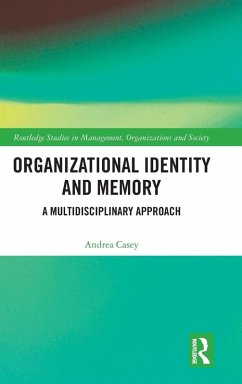
Communication and Organizational Knowledge
Contemporary Issues for Theory and Practice
Herausgeber: Canary, Heather E.; McPhee, Robert D.
Versandkostenfrei!
Versandfertig in 1-2 Wochen
168,99 €
inkl. MwSt.
Weitere Ausgaben:

PAYBACK Punkte
84 °P sammeln!
This book provides an overview of communication-centered theory and research regarding organizational knowledge and learning. It brings the work of scholars in communication, management, information technology, and other disciplines together in a coherent volume that represents existing research and theory on communication-related knowledge work.














